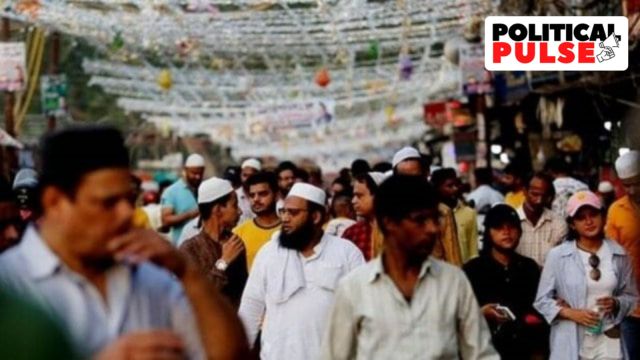Months after a war of words broke out between the ruling BJP and the Opposition INDIA alliance ahead of the Lok Sabha polls over reservation for backward Muslims, the issue remains a bone of contention between the National Commission for Backward Classes (NCBC) and various Opposition-ruled states like Karnataka and West Bengal.

In this connection NCBC chairman Hansraj Ahir, a former Union minster and BJP MP, visited Bengaluru Thursday. Sources said during his Bengaluru meetings Ahir took up a host of issues, including the Muslim quota. He is in Jaipur Friday to undertake a similar exercise.
Story continues below this ad
The Siddaramaiah government has defended the state’s reservation policy, maintaining that it has not brought any new changes and that the Muslim reservation in the OBC category has been there for decades for socially and educationally backward Muslims.
Pointing out that the previous Basavaraj Bommai-led BJP government had scrapped the 4% Muslim reservation under the 2B backward class category and shifted the community to the 10% quota for general category EWS (Economically Weaker Section) ahead of the May 2023 state Assembly elections, the Congress regime has also held that the BJP government had given an undertaking that it would not implement such changes during the pendency of the case in the Supreme Court.
In Karnataka, the OBC quota regime involves four categories. In the category 1, there are 94 castes, including 17 belonging to the Muslim community, competing for 4% quota. In the category 2A, there are 103 castes, including 19 Muslim groups, for whom 15% quota is earmarked. In the category 2B, the Muslim community has been allotted 4% quota. The categories 3A and 3B, with 9% quotas meant for nine castes, do not include any Muslim group.
The main objection of the NCBC, a constitutional body, against Karnataka’s OBC reservation regime is the point that “its three categories have been open to Muslims, with one of these being open to all castes among Muslims”, which, it claims, give the minority community a “higher representation than permitted by the Mandal Commission template, where there are castes across communities that are deemed to be socially and economically backward”. The NCBC has charged that the “blanket quota” for Muslims under the 2B category makes it “akin to religious reservation”.
Story continues below this ad
The quota for Muslims in government jobs and education on the basis of their social and educational backwardness in Karnataka was introduced in 1994 by the then H D Deve Gowda-led Janata Dal government, although this move through the creation of the “2B” category for Muslims, was the continuation of a process in the state that began several decades earlier.
However, the NCBC has been taking a hard look at the matter, seeing it as a case of “overrepresentation” or “religious reservation”.
The NCBC has also joined issue with the Mamata Banerjee-led Trinamool Congress (TMC) government in West Bengal, accusing it of allegedly increasing the number of Muslim castes included in the OBC category gradually. “The Bengal government has increased it to cover a large section of Muslims in the state. However, the high court struck down all OBC certificates issued after 2010,” said the NCBC insider.
In May 2024, the Calcutta High Court cancelled all OBC certificates issued by the Bengal government after 2010, although it permitted those people already recruited under it to continue in their jobs.
Story continues below this ad
The high court had on May 22 struck down the OBC status of a slew of castes in Bengal granted since 2010, holding as illegal the reservation for them in government jobs and educational institutes. The question of reservation had emerged as one of the key issues during the Lok Sabha polls, with both the INDIA bloc and the BJP, in their respective campaigns, accusing each other of trying to undermine the quota regime.
While the Opposition parties charged that during its another term the Narendra Modi government would “change” the Constitution and target reservations, the BJP alleged that the INDIA alliance intended to take reservations away from SC/STs and OBCs to give it to the Muslim community.

































